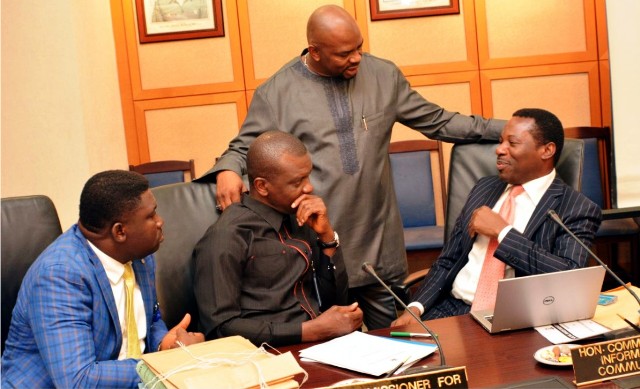Business
Group Wants OBALGA Boss To Decongest Roundabout

A socio-cultural group,
Obio/Akpor Youth Agenda (OYA), has called on the Caretaker Committee Chairman of Obio/Akpor Local Government Area, Collins Onunwor, to decongest the popular Rumuokoro roundabout to allow for free flow of traffic.
President of the group, Buduka Willi Okpa while congratulating Onunwor for his re-appointment as CTC of Obio/Akpor advised him to constitute a taskforce that would regulate the activities of commercial drivers and traders on major junctions within the local government area, especially the Rumuokoro roundabout.
Onunwor stated that activities of traders and commercial drivers are responsible for the increased traffic at major junctions in the area.
“As I congratulate him, I also want to charge him to assist the security agencies to decongest Rumuokoro junctions,” he said.
He added that there was an urgent need to create a terminal specifically for commercial drivers.
“He should as a matter of urgency create a terminal and possibly invite commercial drivers and educate them on the usage of this terminal.
“I think it will go a long way to assist us at Rumuokoro roundabout,” he said.
The Tide further reports that the President of the body also called on the CTC chairman of the area to look into the issue of noise pollution caused by mobile traders.
Let me also appeal to him to invite those advertising their herbal drugs at Rumuokoro junction and call them to order.
“We are talking about noise control, so Rumuokoro area should be starting point for the control of this noise pollution in the area.
“He decried the increased rate of noise generated b y these herbal drug sellers which has become unchecked in recent times and called for a framework to check the ugly development.
You see those advertising their herbal medicine, you see them making a lot of noise, inviting people with the loud speakers, I think it is not ideal, they should be properly advised on how to advertise their drugs,” he said.
Business
PENGASSAN Tasks Multinationals On Workers’ Salary Increase

Business
SEC Unveils Digital Regulatory Hub To Boost Oversight Across Financial Markets

Business
NAFDAC Decries Circulation Of Prohibited Food Items In markets …….Orders Vendors’ Immediate Cessation Of Dealings With Products

Importers, market traders, and supermarket operators have therefore, been directed to immediately cease all dealings in these items and to notify their supply chain partners to halt transactions involving prohibited products.
The agency emphasized that failure to comply will attract strict enforcement measures, including seizure and destruction of goods, suspension or revocation of operational licences, and prosecution under relevant laws.
The statement said “The National Agency for Food and Drug Administration and Control (NAFDAC) has raised an alarm over the growing incidence of smuggling, sale, and distribution of regulated food products such as pasta, noodles, sugar, and tomato paste currently found in markets across the country.
“These products are expressly listed on the Federal Government’s Customs Prohibition List and are not permitted for importation”.
NAFDAC also called on other government bodies, including the Nigeria Customs Service, Nigeria Immigration Service(NIS) Standards Organisation of Nigeria (SON), Nigerian Ports Authority (NPA), Nigerian Maritime Administration and Safety Agency (NIMASA), Nigeria Shippers Council, and the Nigeria Agricultural Quarantine Service (NAQS), to collaborate in enforcing the ban on these unsafe products.
-

 Politics3 days ago
Politics3 days agoSenate Receives Tinubu’s 2026-2028 MTEF/FSP For Approval
-

 News3 days ago
News3 days agoRSG Lists Key Areas of 2026 Budget
-

 Sports3 days ago
Sports3 days agoNew W.White Cup: GSS Elekahia Emerged Champions
-

 News3 days ago
News3 days agoDangote Unveils N100bn Education Fund For Nigerian Students
-

 News3 days ago
News3 days agoTinubu Opens Bodo-Bonny Road …Fubara Expresses Gratitude
-
Sports3 days ago
Players Battle For Honours At PH International Polo Tourney
-
News3 days ago
Nigeria Tops Countries Ignoring Judgements -ECOWAS Court
-

 Sports3 days ago
Sports3 days agoAllStars Club Renovates Tennis Court… Appeal to Stop Misuse

